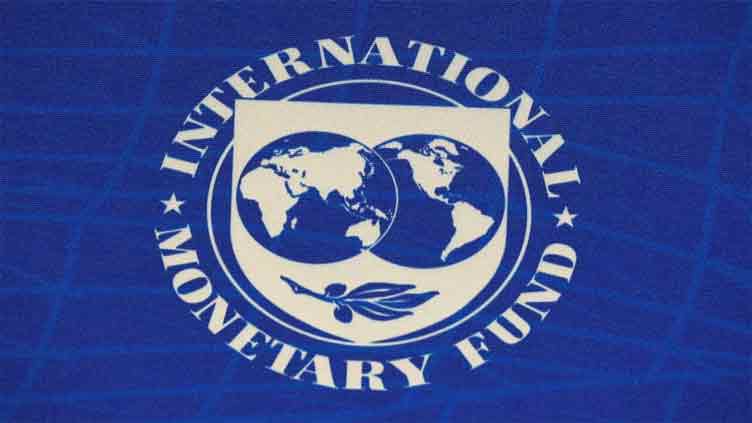Talks start to secure IMF programme, agreement reached on budget targets

Business
No borrowing from central bank, timely external debt repayment to be ensured
- Pakistan is hoping to get up to $8bn under Extended Fund Facility and will also press the case for climate financing
- Govt has already started working on introducing more austerity measures, including pension reforms, as privatisation remains one of the top agenda
- Washington-based lender agrees to extending targeted subsidies to low-income groups who are worst affected by inflation
ISLAMABAD (Web Desk/Dunya News) – As Islamabad eyes a bigger and longer bailout package to stabilise and revive its economy, talks have started between Pakistan and the International Monetary Fund today (Monday) on not only Extended Fund Facility (EFF) but also climate financing.
On the other hand, the two sides have agreed on the important targets set for the upcoming budget, sources say, which includes timely repayment of external debt repayments.
The Washington-based world’s top financial institution is represented by a team led by Nathan Porter – the IMF’s Mission Chief to Pakistan – a process that is expected to take two weeks, as they reached the finance ministry for an introductory session.
In this connection, Finance Minister Muhammad Aurangzeb and other economic team members briefed the IMF mission on the current state of affairs, including the previous terms and meeting the terms and conditions set by the lender previously.
Meanwhile, the IMF has agreed to the suggestion concerning extending targeted subsidies to the low-income groups which are worst affected by inflation, sources claimed.
Read more: No backtracking on tax net expansion: Aurangzeb
During the briefing, Porter stressed the need for implementing the IMF recommendations and noted that political instability produced the challenges faced on the economic front in Pakistan.
He called for all political parties working together for economic revival and promised to continue assisting Pakistan while assuring the Pakistani side of fixing the EFF size and duration in consultation with the IMF Executive Board.
By the time the dialogue is over, the federal government will table next fiscal year budget for 2024-25 early next month, as the IMF team is also going to discuss the nature and details of the document with the Pakistani authorities.
However, the final approval of the IMF programme, in case of successful talks, is expected later in late June or early July.
The sources say Pakistan has completed its homework on EFF and drafted a working paper, as the government is hoping an IMF programme worth $6 billion to $8 billion for a period of three to four years.
In this connection, IMF Resident Representative for Pakistan Esther Perez Ruiz said the IMF team would meet authorities to discuss the next phase of engagement, with an aim to lay the foundation for better governance and stronger, more inclusive, and resilient economic growth that will benefit all Pakistanis.
BUDGET TARGETS
Besides ensuring external debt repayments, it has also been decided, the sources say, that the government will not borrow from the State Bank of Pakistan (SBP) and refrain from imposing any import restrictions.
Moreover, the Federal Board of Revenue (FBR) will be bound to refund the amount on time and there won’t be any restrictions on international transactions too.
The sources say the government will also issue bonds in international market to boost foreign reserves and meet the foreign debt obligations.
On the other hand, the information concerning the finance and energy ministries is to be shared with the IMF which will also be updated about the market-based exchange rate as well as the working of FBR and Pakistan Bureau of Statistics (PBS).
MONETARY POLICY
After the first session at the finance ministry, the IMF team held a meeting with SBP Governor Jameel Ahmad, during which, according the sources, monetary policy and exchange rate remained the focus.
The IMF has not only been advocating but pressing hard for monetary tightening [high interest rates] and against any government intervention to boost the rupee which has weakened against the dollar to a level where Pakistan is finding it difficult to manage the accounts and the people are crushed by a stubborn inflation.
AUSTERITY MEASURES
With the IMF setting tough conditions and Pakistan desperate to secure a new deal, the government has already started working on austerity measures and boosting revenue collection to meet the criteria determined by the international financial institution.
Last week, the government said work was in progress for retirement and pension reforms which would be applicable to all the institutions – a move that is expressing Islamabad’s desire to reduce government spending for controlling budget deficit.
Meanwhile, it is mulling over ending tax exemptions in the upcoming budget. Sources in the Federal Board of Revenue (FBR) say it is proposed that 1 per cent withholding tax on commercial importers – a move that is expected to generate Rs25 billion a year.
Furthermore, the sales tax exemption in the case of tractors [including the imported ones] and pesticides is also to be ended, which will help the government collect an additional Rs30bn annually.
However, the proposals are to affect the agriculture sector directly and increase the farming input costs, thus further slashing the profit margins of farmers, more than 80pc of whom have small or medium-size landholdings.
Read more: Budget proposals: Improved tax collection through property, retail sectors envisioned
Meanwhile, the government is also going for subsidy cuts for power and gas consumers which will sustain the cost of living crisis felt by an overwhelming majority in Pakistan, despite a persistent decline in inflation as reflected by the consumer price index (CPI), which slipped to 17pc in April – a trend witnessed during the past four years.
At the same time, the coalition government has expedited the privatisation process for the lossmaking state-owned enterprises, with the PIA topping the list, as Islamabad hopes to dispose of the national flag carrier before June-end.


